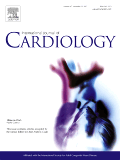 Plagiarism and duplication might involve the same act — the misuse of text and/or data — but they are different species. Take it from Eldon Smith, who as editor of the Canadian Journal of Cardiology defined the two acts of misconduct for his readers:
Plagiarism and duplication might involve the same act — the misuse of text and/or data — but they are different species. Take it from Eldon Smith, who as editor of the Canadian Journal of Cardiology defined the two acts of misconduct for his readers:
Plagiarism is the appropriation of another person’s ideas, processes, results or words without giving appropriate credit (1). One usually thinks of plagiarism in science as publishing phrases, sentences or passages (without attribution) that were previously published by someone else. …
If an author publishes the same article twice, he or she is guilty not only of the misconduct of duplicate publication, but also of plagiarism; this time, the author has plagiarized himself or herself. Unfortunately, such blatant misconduct is not rare. … It is difficult to understand how this can be interpreted as an honest error.
Perhaps the editors of the International Journal of Cardiology might want to take a look at Smith’s editorial. Continue reading Retraction Watch, Noah Webster style, cardiology edition
 A cardiology journal has retracted a 2016 meta-analysis after the editors had an, ahem, change of heart about the rigor of the study.
A cardiology journal has retracted a 2016 meta-analysis after the editors had an, ahem, change of heart about the rigor of the study.